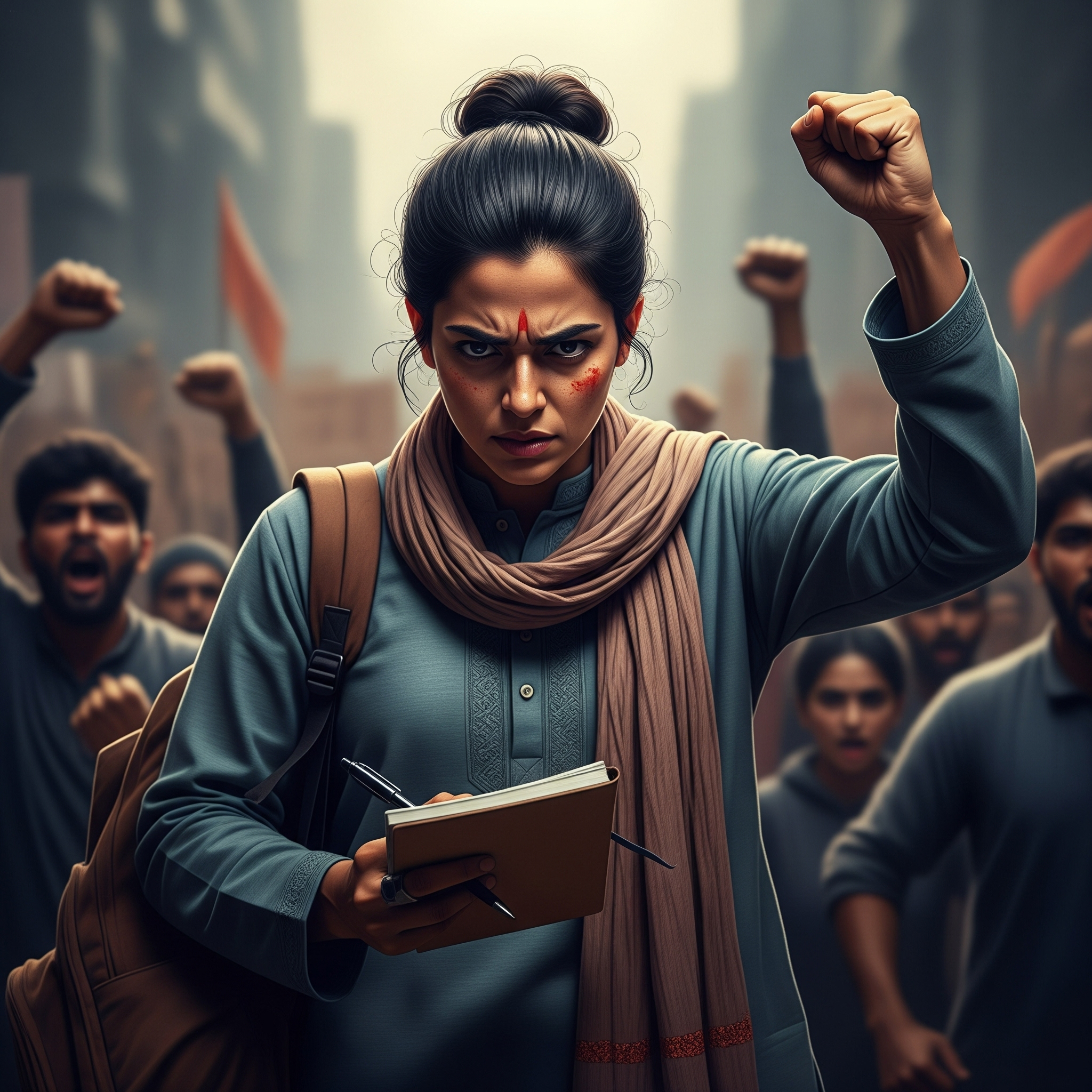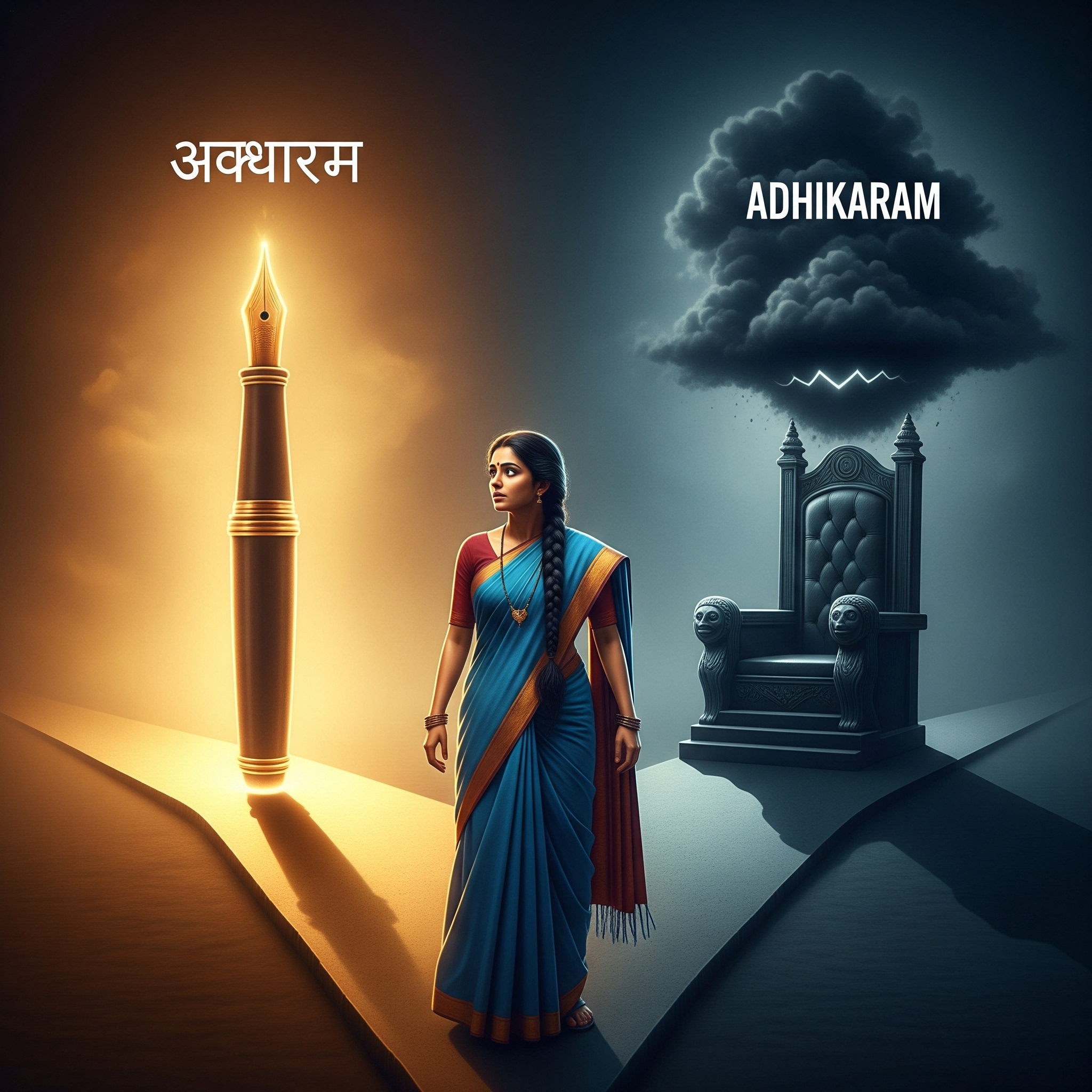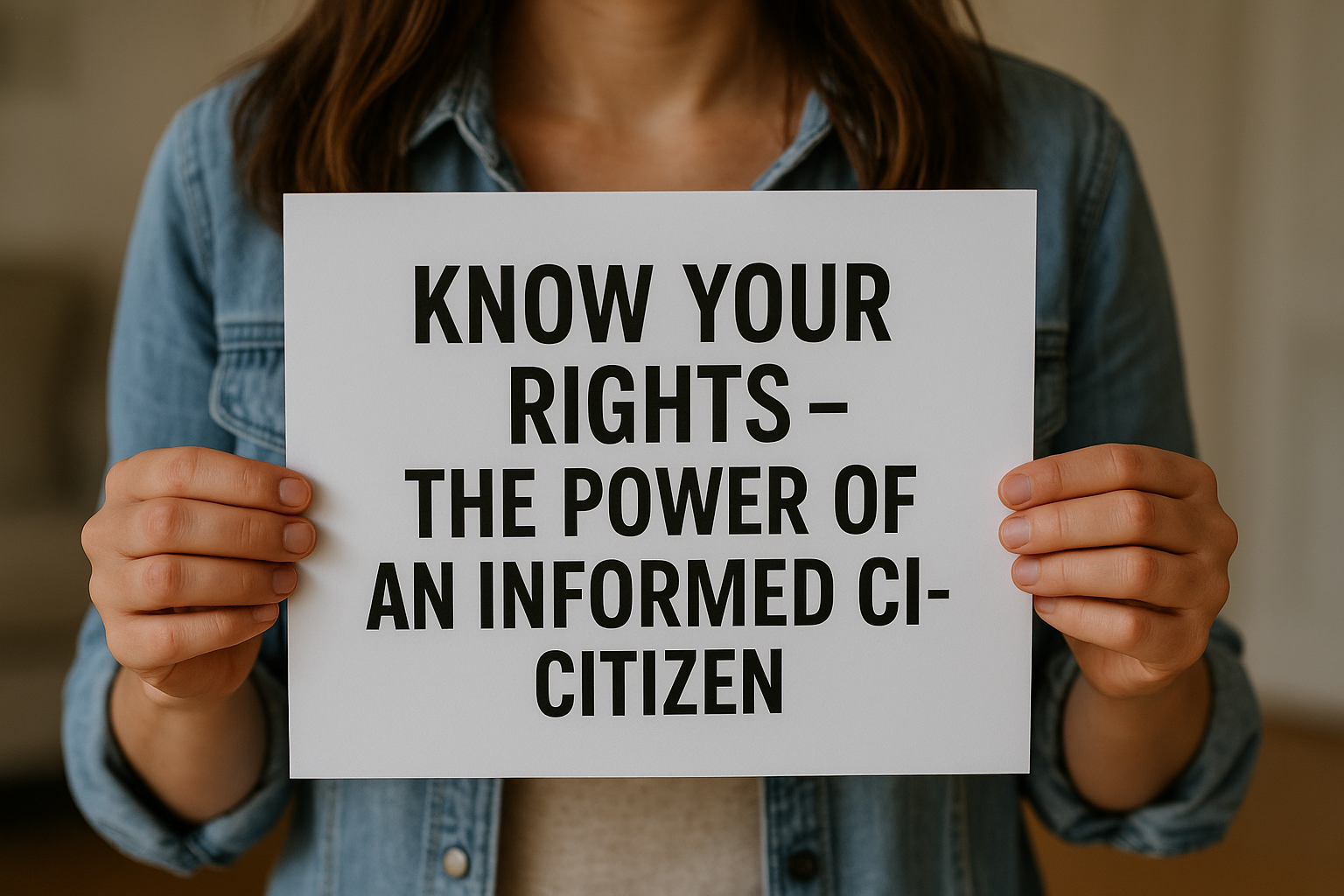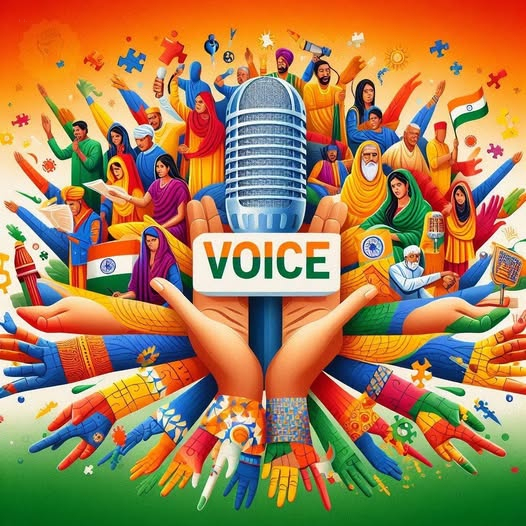The Voice Listens
Anjali clutched her journalism degree like a shield that had failed her. In the gleaming, high-decibel newsrooms of Delhi where she had interned, truth was a commodity, traded for ratings and shaped by the highest bidder. Stories that mattered were buried under an avalanche of celebrity gossip and political shouting matches. The fire that had propelled her through college was dwindling to a flicker of disillusionment. Was this it? Was the voice of the nation just the loudest echo in a closed chamber?
One night, scrolling aimlessly through the digital noise, a simple, stark headline caught her eye. It wasn't from a major outlet. The website was minimalist, almost plain. The logo was a simple, powerful Devanagari script: भारत आवाज़ (Bharat Aawaz). The tagline read: Can You Be the Voice of the Poor, Deprived, and Depressed?
The story was about a community of weavers in rural Bihar whose livelihood was being decimated by a new industrial policy. It was told not through the lens of an expert in a studio, but through the raw, unfiltered words of the weavers themselves. There was no sensationalism, only a quiet, profound dignity in their struggle. Anjali spent the next hour devouring every article on the site. These were stories from the heart of the country, from the places the cameras never went. This was journalism as a service, not a spectacle.
With a surge of purpose she hadn't felt in months, she found their contact information—a simple WhatsApp number. She typed out a message, her heart pounding. "I want to be a voice," she wrote. "I want to join."
The reply came from a man named Prakash, the founder and editor. Bharat Aawaz, he explained, wasn't a company; it was a mission. They had no fancy office, just a network of a few dedicated reporters and citizen journalists, connected by their shared belief that the real stories of India were not in its boardrooms, but in its villages, its fields, and its slums.
Her first assignment was a whisper of a lead from a remote tribal hamlet in the hills of Jharkhand, a place called Pathargarh. The official story was that the village was being "relocated" for a new dam project, a symbol of progress. The whisper said otherwise.
When Anjali arrived, the air was thick with fear. The villagers, proud and ancient, were being treated like ghosts on their own land. Men in uniforms patrolled their fields, and the promises of compensation and new homes were hollow words that dissolved in the monsoon air. For days, no one would speak to her. To them, she was just another outsider with a notebook, another tourist of their tragedy.
Remembering Prakash's advice—"Don't be a reporter, be a listener"—she put her notebook away. She helped an elderly woman draw water from the well. She sat with the children and listened to their songs. She shared the simple meals offered to her, learning the names of the trees, the hills, and the spirits that resided in them.
Slowly, the stories came. Not as interviews, but as conversations. They spoke of sacred groves that would be submerged, of ancestral lands sold through forged documents, of a future where their identity would be washed away. An old chieftain, his eyes holding the wisdom of generations, finally showed her a tattered, hidden file. It contained original land deeds, proof that the land was theirs, a truth the authorities claimed did not exist.
As she documented the evidence, the pressure mounted. Her tires were slashed. A local official warned her to leave for her own safety. The human in her was terrified. But the journalist in her, the voice she had promised to be, knew this was the story. This was the moment of choice: to be a chronicler of their defeat, or a channel for their fight.
She sent her findings to Prakash. Bharat Aawaz didn't just publish an article. They started a movement. They used the villagers' own words, their photos, their songs. The headline was simple: "Pathargarh Has a Voice. Are You Listening?"
The story, amplified on social media, broke through the national media's bubble of indifference. It was shared by students, activists, and then, by more prominent journalists who had been shamed into paying attention. The hashtag
#AawazForPathargarh began to trend. The raw truth of the villagers' testimony was more powerful than any polished corporate press release.
Weeks later, a team of human rights lawyers, alerted by the story, arrived in Pathargarh. A national commission launched an inquiry. The dam project was halted, pending a review of the land claims.
Anjali stood on a hill overlooking the village, not as a reporter who had "broken" a story, but as a link in a chain of truth. The victory wasn't hers; it belonged to the people of Pathargarh who had dared to speak. Bharat Aawaz hadn't given them a voice; it had simply passed them the microphone, ensuring the whole country could hear the song they were already singing. The flicker of disillusionment she once felt had been forged in the fire of Pathargarh's struggle into an unshakeable flame. She finally understood. To be the voice of Bharat, you first had to learn how to listen.
The Voice Listens
Anjali clutched her journalism degree like a shield that had failed her. In the gleaming, high-decibel newsrooms of Delhi where she had interned, truth was a commodity, traded for ratings and shaped by the highest bidder. Stories that mattered were buried under an avalanche of celebrity gossip and political shouting matches. The fire that had propelled her through college was dwindling to a flicker of disillusionment. Was this it? Was the voice of the nation just the loudest echo in a closed chamber?
One night, scrolling aimlessly through the digital noise, a simple, stark headline caught her eye. It wasn't from a major outlet. The website was minimalist, almost plain. The logo was a simple, powerful Devanagari script: भारत आवाज़ (Bharat Aawaz). The tagline read: Can You Be the Voice of the Poor, Deprived, and Depressed?
The story was about a community of weavers in rural Bihar whose livelihood was being decimated by a new industrial policy. It was told not through the lens of an expert in a studio, but through the raw, unfiltered words of the weavers themselves. There was no sensationalism, only a quiet, profound dignity in their struggle. Anjali spent the next hour devouring every article on the site. These were stories from the heart of the country, from the places the cameras never went. This was journalism as a service, not a spectacle.
With a surge of purpose she hadn't felt in months, she found their contact information—a simple WhatsApp number. She typed out a message, her heart pounding. "I want to be a voice," she wrote. "I want to join."
The reply came from a man named Prakash, the founder and editor. Bharat Aawaz, he explained, wasn't a company; it was a mission. They had no fancy office, just a network of a few dedicated reporters and citizen journalists, connected by their shared belief that the real stories of India were not in its boardrooms, but in its villages, its fields, and its slums.
Her first assignment was a whisper of a lead from a remote tribal hamlet in the hills of Jharkhand, a place called Pathargarh. The official story was that the village was being "relocated" for a new dam project, a symbol of progress. The whisper said otherwise.
When Anjali arrived, the air was thick with fear. The villagers, proud and ancient, were being treated like ghosts on their own land. Men in uniforms patrolled their fields, and the promises of compensation and new homes were hollow words that dissolved in the monsoon air. For days, no one would speak to her. To them, she was just another outsider with a notebook, another tourist of their tragedy.
Remembering Prakash's advice—"Don't be a reporter, be a listener"—she put her notebook away. She helped an elderly woman draw water from the well. She sat with the children and listened to their songs. She shared the simple meals offered to her, learning the names of the trees, the hills, and the spirits that resided in them.
Slowly, the stories came. Not as interviews, but as conversations. They spoke of sacred groves that would be submerged, of ancestral lands sold through forged documents, of a future where their identity would be washed away. An old chieftain, his eyes holding the wisdom of generations, finally showed her a tattered, hidden file. It contained original land deeds, proof that the land was theirs, a truth the authorities claimed did not exist.
As she documented the evidence, the pressure mounted. Her tires were slashed. A local official warned her to leave for her own safety. The human in her was terrified. But the journalist in her, the voice she had promised to be, knew this was the story. This was the moment of choice: to be a chronicler of their defeat, or a channel for their fight.
She sent her findings to Prakash. Bharat Aawaz didn't just publish an article. They started a movement. They used the villagers' own words, their photos, their songs. The headline was simple: "Pathargarh Has a Voice. Are You Listening?"
The story, amplified on social media, broke through the national media's bubble of indifference. It was shared by students, activists, and then, by more prominent journalists who had been shamed into paying attention. The hashtag #AawazForPathargarh began to trend. The raw truth of the villagers' testimony was more powerful than any polished corporate press release.
Weeks later, a team of human rights lawyers, alerted by the story, arrived in Pathargarh. A national commission launched an inquiry. The dam project was halted, pending a review of the land claims.
Anjali stood on a hill overlooking the village, not as a reporter who had "broken" a story, but as a link in a chain of truth. The victory wasn't hers; it belonged to the people of Pathargarh who had dared to speak. Bharat Aawaz hadn't given them a voice; it had simply passed them the microphone, ensuring the whole country could hear the song they were already singing. The flicker of disillusionment she once felt had been forged in the fire of Pathargarh's struggle into an unshakeable flame. She finally understood. To be the voice of Bharat, you first had to learn how to listen.












